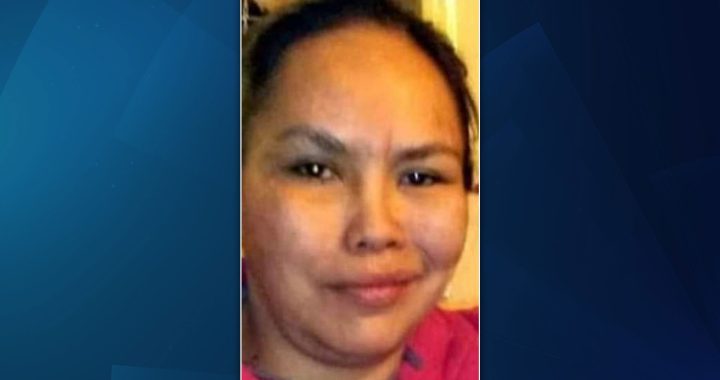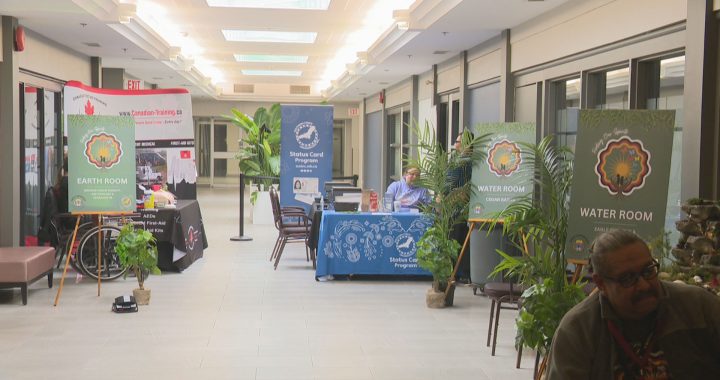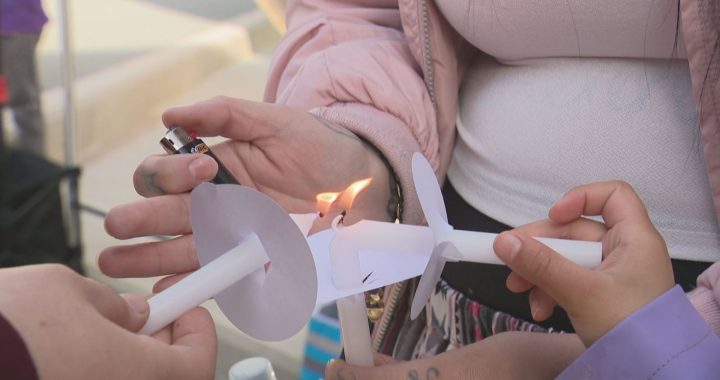Isabel Welsh has been the main caretaker for her 20-year-old granddaughter Jennifer since she was a baby.
Jennifer is Ojibway. She has cerebral palsy and limited movement and vocabulary.
She requires a feeding tube, special bathing facilities and a lift to help her get in and out of her wheelchair and bed.
Jennifer has two home care workers that help Welsh look after her.
But Welsh says at 76, she’s getting up in age, and she and her family would like an occasional respite from Jennifer’s around-the-clock care.
“It would certainly make her life easier if she was in long-term care,” Welsh says. “If I were sick, she could go into long-term care for a short period of time.
“We’d still be able to visit her, or, if things get to the point where we can’t care for her, she’d be close to us.”
Welsh’s family is one of many in Watson Lake, Yukon, calling on the territorial government to build a long-term care facility for seniors and people who require a high degree of care.
Watson Lake, located 440 km southeast of Whitehorse, has a population of around 1,500 people.
The nearest assisted living facilities are five hours away in Whitehorse, which Welsh says, can be a long, costly drive for residents of Watson Lake and surrounding areas.
She says the population of the community is getting older, too.
“It’s not convenient, and I know we have an aging population here and we’re going to need care. Not everyone wants to go to Whitehorse…and people are being separated from their loved ones,” she says.
While there is a 12-plex seniors unit in the community which provides home care providers for people with moderate health problems, Welsh says it doesn’t offer the same degree of care as a long-term care facility.
Welsh says Jennifer used to receive funding through Jordan’s Principle but it stopped when she aged out at 19.
The funding allowed for an addition to be added to Welsh’s house so the lift and bathing facilities could be added to better accommodate Jennifer’s care, as well as some supplies.
Welsh says she now receives funding through Non-Insured Health Benefits for First Nations and Inuit (HNIB), though it sometimes doesn’t provide the supplies Jennifer requires.
“There are the little things, like the wipes,” Welsh says. “When she has a bowel movement or her diapers are being changed, they want us to use face cloths, well try and use face cloths on a 20-year-old that has just had a bowel movement,” she says.
Chief on board
The lack of long-term care facilities is an issue Chief Stephen Charlie of Watson Lake’s Liard First Nation (LFN) can relate to.
His stepmother, aunty and uncle lived out the rest of their lives at an assisted living facility in Whitehorse because there was nowhere for them to go in Watson Lake.
He says sending loved ones to Whitehorse is affecting his people and breaking families apart.
“This separation is really hard on people, especially our elders, and it’s why we need a facility here in Watson Lake,” he says.
Charlie says he knows operation, maintenance and staffing are obstacles to building a facility, but he says not building one will only cause more harm to the community.
“I know there’s costs looked at, but what about the cost to the community of not having their elders here? It’s unacceptable,” he says.
Charlie says if the territorial government doesn’t act soon, LFN will build its own facility that would also be open to residents of Watson Lake.
He says he would like to see that facility include cultural supports like traditional food, medicine, regalia displays and rooms that could accommodate couples and family visitors.
“We need to foster relationships with elders through love and these things are really lacking that we have for elder care now in our community,” he says.
Charlie says LFN has been advocating for a long-term care facility through Watson Lake’s MLA, Patti McLeod, who submitted a petition with over 500 signatures to Health and Social Services Minister Tracey-Ann McPhee in the territorial legislature last fall.
McPhee replied in a letter addressed to McLeod in February that no plans were underway for a facility.
She said in an email statement to APTN News that her department would “continue to monitor and act on changes in assessed community needs.”
She noted according to the territory’s Aging in Place engagement, as well as best practices, alternatives to a long-term care facility could include in-home respite and enhanced staffing models. She said her department is also working with the Yukon Hospital Corporation to explore other options in Watson Lake.
But Welsh says McPhee is “blowing smoke.”
“They’re not supposed to be just deciding what the general public wants without ever asking. It’s just crazy. I don’t feel that they have any idea what we want,” she says.
She says her and others petitioning for a facility want McPhee to be more communicative when it comes to matters regarding long-term care and to work with residents of Watson Lake to ensure a facility is built.
Welsh says for now she’ll continue to care for her granddaughter the best way she knows how.
“She taught me that life is not by what you can produce, or what you can contribute to society, but life is important of itself, just by being there.”









